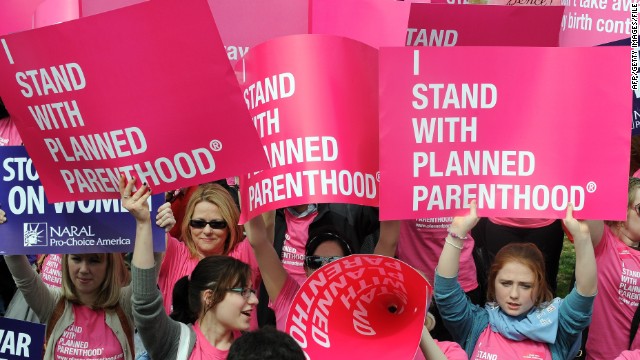 Unhealthy fastfood, snack food, candy, and drink advertising catered to kids have always been somewhat of a controversy. The issue has only gotten more heated as childhood obesity continues to plague our youth and make our country self-conscious in the face of all those skinny, well educated foreigners. In a surprisingly selfless move the other day, Disney announced that it was requiring all of its advertisers to comply with strict nutritional standards. No longer will unhealthy brands be allowed to target kids on not only the Disney Channel, but on all of their tv properties, radio stations, and websites as well.
Unhealthy fastfood, snack food, candy, and drink advertising catered to kids have always been somewhat of a controversy. The issue has only gotten more heated as childhood obesity continues to plague our youth and make our country self-conscious in the face of all those skinny, well educated foreigners. In a surprisingly selfless move the other day, Disney announced that it was requiring all of its advertisers to comply with strict nutritional standards. No longer will unhealthy brands be allowed to target kids on not only the Disney Channel, but on all of their tv properties, radio stations, and websites as well.This play reeks of smart brand strategy. Disney is supporting a cause that is near and dear to its heart and taking a stand against brands who give children what they want but not what they need. By making a move that has real value to the company, Disney comes off as genuine and caring. So often when PR plays are executed without careful planning, simply so a company can say they are socially responsible, people can tell that they're just playing the game and the goal of the scheme is to make more money in the long term.
 That brings me to the interesting part of this news, the fact that Disney is likely going to lose a lot of advertising revenue based on this decision. Think about how many properties Disney owns on all the different forms of media. It's one of the top names in kid's entertainment and has thus been a major outlet for unhealthy sweets that can make a child's eyes go wide or fastfood options that attract kids with the promise of toys and busy parents with the promise of a quick alternative to a home-cooked meal. Think about all of those brands buying space on all of those platforms, and you've got a hefty sum. Now, Disney is certainly not pressed for cash, but it's still admirable that they're willing to give up a historically lucrative partnership to make our nation healthier, fitter, and possibly happier. What will really be curious, is whether in the long run, Disney bans unhealthy options from its physical properties like parks and cruise ships.
That brings me to the interesting part of this news, the fact that Disney is likely going to lose a lot of advertising revenue based on this decision. Think about how many properties Disney owns on all the different forms of media. It's one of the top names in kid's entertainment and has thus been a major outlet for unhealthy sweets that can make a child's eyes go wide or fastfood options that attract kids with the promise of toys and busy parents with the promise of a quick alternative to a home-cooked meal. Think about all of those brands buying space on all of those platforms, and you've got a hefty sum. Now, Disney is certainly not pressed for cash, but it's still admirable that they're willing to give up a historically lucrative partnership to make our nation healthier, fitter, and possibly happier. What will really be curious, is whether in the long run, Disney bans unhealthy options from its physical properties like parks and cruise ships. Now obviously this move alone isn't going to suddenly enlighten everyone on nutrition and fix childhood obesity. The majority of Disney viewers probably won't even consciously notice the difference. What will happen though, is that kids will start being primed with healthy messages rather than fast food. Passing through the produce section will trigger a memorable advertisement for berries. There will be brand recognition for 100% juice drinks and Kashi rather than Capri-Sun and Pop-Tarts. If more networks were willing to make a move like this (emphasis on this being a network decision rather than a government mandate) it could really make an impact on purchasing habits in favor of nutritious products.
Now obviously this move alone isn't going to suddenly enlighten everyone on nutrition and fix childhood obesity. The majority of Disney viewers probably won't even consciously notice the difference. What will happen though, is that kids will start being primed with healthy messages rather than fast food. Passing through the produce section will trigger a memorable advertisement for berries. There will be brand recognition for 100% juice drinks and Kashi rather than Capri-Sun and Pop-Tarts. If more networks were willing to make a move like this (emphasis on this being a network decision rather than a government mandate) it could really make an impact on purchasing habits in favor of nutritious products.All in all, I think this is a pretty admirable course of action for Disney, because it shows that they really do care about their fans. Perhaps we will start to see other companies take a similar stand. Even if the reasoning is a just bandwagon, me-too mentality, increased pressure on food makers might force change. There is some basis for this change, though it may be a little lofty. First, if they're banned from all these channels, visibility and reach go way down and sales will likely follow. Second, perhaps with less exposure, people's opinions will change and unhealthy options will no longer be so prominent in our country. This seems like a feasible scenario considering organic, low calorie, foods are being offered more and more. If taken up on a large scale, either of these options could force the state of our food industry to change or risk losing business. I'll definitely be keeping an eye out for the results of this decision, could be an exciting progression. For now, here's Simba eating a bug...slimy and satisfying.



